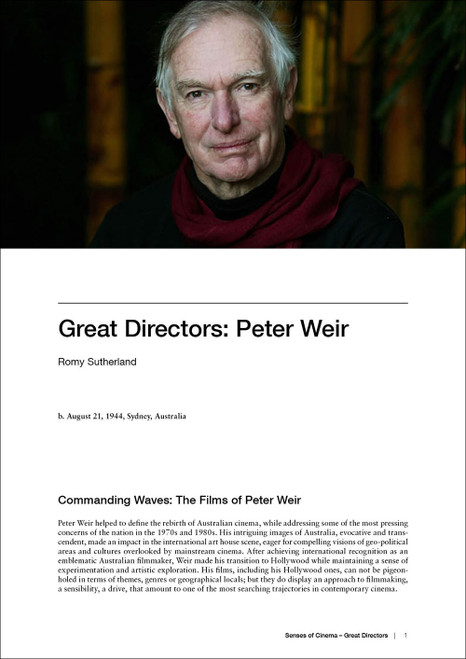Product Overview
Article sample:
Then in 1919 Vertov and his future wife, film editor Elisaveta Svilova, along with other young filmmakers, created a group called Kinoks ('kino-oki', meaning cinema-eyes). In 1922 they were joined by Vertov's brother, Mikhail Kaufman, who had just returned from the civil war. From 1922 to 1923 Vertov, Kaufman, and Svilova published a number of manifestos in avant-garde journals, which set out the Kinoks' positions as opposed to other leftist groups. The Kinoks rejected 'staged' cinema with its stars, plots, props and studio shooting. They insisted that the cinema of the future be the cinema of fact: newsreels recording the real world, as 'life caught unawares.'
Vertov proclaimed the primacy of the camera itself (the 'Kino-Eye') over the human eye. He clearly saw it as some kind of innocent machine that could record without bias or superfluous aesthetic considerations (as would, say, its human operator) the world as it really was. The camera lens was a machine that could be perfected bit by bit, to seize the world in its entirety and organize visual chaos into a coherent, objective set of pictures. At the same time Vertov was keen to assert that his Kino-Eye principle was a method of 'communist' (or 'true marxist') deciphering of the world, though this latter tenet was not much more convincing then than now.
About Senses of Cinema:
Senses of Cinema is an online journal devoted to the serious and eclectic discussion of cinema. We believe cinema is an art that can take many forms, from the industrially-produced blockbuster to the hand-crafted experimental work; we also aim to encourage awareness of the histories of such diverse forms. As an Australian-based journal, we have a special commitment to the regular, wide-ranging analysis and critique of Australian cinema, past and present. Senses of Cinema is primarily concerned with ideas about particular films or bodies of work, but also with the regimes (ideological, economic and so forth) under which films are produced and viewed, and with the more abstract theoretical and philosophical issues raised by film study.







